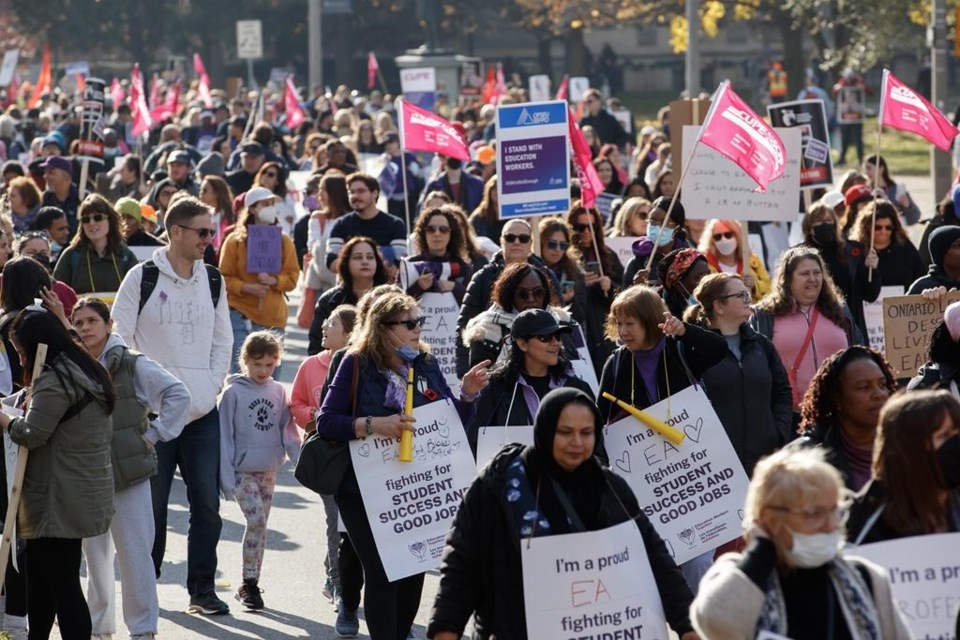TORONTO — Several Ontario school boards said Friday they will move to remote learning next week indefinitely if an education workers' strike continues.
Thousands of Canadian Union of Public Employees workers -- including education assistants, custodians and librarians -- walked off the job earlier in the day and the union's leaders have said the job action will continue "until our members decide otherwise," despite a law banning them from striking and the possibility of fines.
The Toronto District School Board -- which previously said schools would be closed until the strike is over -- said Friday it was hopeful an agreement could be reached, but if job action continues, it would have to move to virtual learning.
"TDSB students will begin transitioning to synchronous (live, interactive) learning early next week, if the strike action continues," the board said in a memo sent to parents.
The Toronto District Catholic School Board and the York Catholic District School Board said their schools will remain closed next week in the event of an extended strike and students will start remote learning Monday.
York Region's public school board said students will do virtual learning if the strike continues, but has not specified what day that teaching would start.
In Peel Region, the publicboard says schools will remain closed Monday in the event of a continued strike, and if it continues beyond that day, students will start remote learning on Tuesday.
Looking east, the Kawartha Pine Ridge District School Board said schools will remain closed Monday and teachers will assign work for students to do at home.
The Progressive Conservative government enacted a law Thursday that imposed a contract on 55,000 CUPE education workers and banned them from striking, pre-emptively using the notwithstanding clause to guard against constitutional challenges.
But CUPE began a strike anyway, and the government took the union to the Ontario Labour Relations Board, seeking to have the strike declared illegal and the actions by union leaders to encourage the job action declared unlawful.
The law sets out fines for violating a prohibition on strikes for the life of the agreement of up to $4,000 per employee per day – which could amount to $220 million for all 55,000 workers – while there are fines of up to $500,000 per day for the union.
The government originally offered raises of two per cent a year for workers making less than $40,000 and 1.25 per cent for all others, but the new, imposed four-year deal gives 2.5 per cent annual raises to workers making less than $43,000 and 1.5 per cent raises for all others.
CUPE has said that framing is not accurate because the raises actually depend on hourly wages and pay scales, so the majority of workers who earn less than $43,000 in a year wouldn't get 2.5 per cent.
CUPE had been seeking annual salary increases of 11.7 per cent.
This report by The Canadian Press was first published Nov. 4, 2022.
Allison Jones, The Canadian Press

